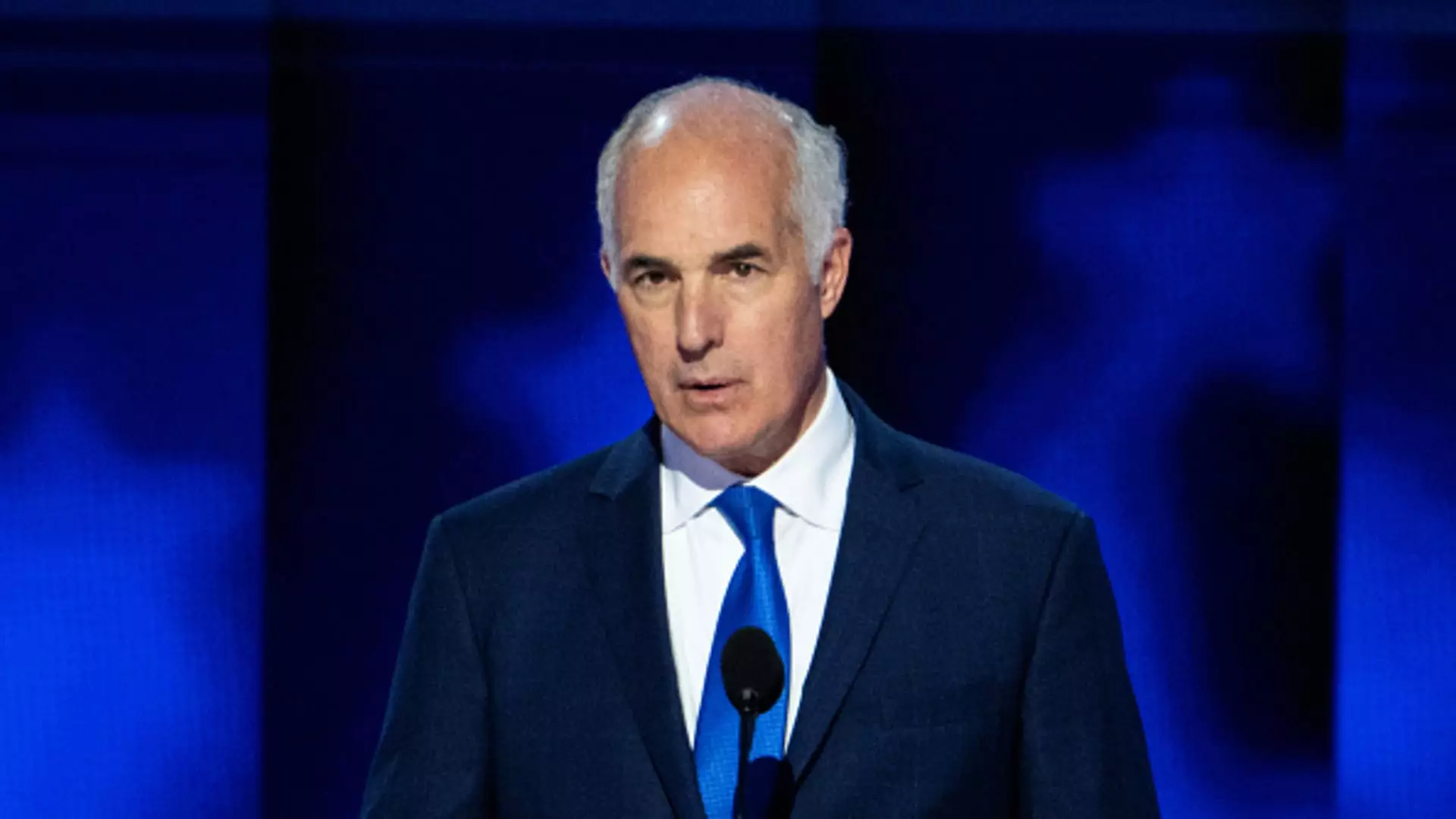In a pivotal moment for Pennsylvania’s political scene, Democrat Senator Bob Casey conceded the race for his Senate seat to Republican challenger Dave McCormick. The concession came on a significant Thursday, with NBC News quickly projecting McCormick’s victory. This decision was a pivotal turning point for both parties, marking a shift in power dynamics within the state and highlighting the ongoing competition between Democrats and Republicans at the national level.
The closeness of the race sparked an automatic recount, exacerbating the tension felt by both candidates and their supporters. With just over 16,000 votes separating them—McCormick at 48.8% and Casey trailing with 48.6%—the stakes were incredibly high. Casey addressed the situation earnestly, emphasizing that every voice had been heard and voters could finally find closure as the ballots were fully counted. His message was not just a concession but a rallying point for his constituents, underscoring the importance of democracy in action.
In the wake of Casey’s concession, Dave McCormick expressed gratitude toward his opponent, acknowledging Casey’s contributions to the state throughout his political career. This gracious concession and acknowledgment often reflect a robust democratic principle, recognizing the values held by each candidate and the people they aim to serve. While McCormick prepared to step into his new role, he made it clear that his primary mission is to represent every citizen of Pennsylvania passionately, committing to fight for their interests daily.
McCormick’s victory reinforced the Republican majority in the Senate as they geared up for a unified governance with control of the White House and both chambers of Congress. This consolidation of power suggests a potential easing of legislative processes, including the confirmation of President-elect Donald Trump’s Cabinet nominations. The implications of this shift extend beyond Pennsylvania borders, affecting national policies and legislative agendas in a range of issues.
The outcomes of senatorial elections like this one provide a platform for analysis regarding the strategic adjustments needed within the Democratic Party. Casey’s lengthy tenure and the narrow defeat may prompt party leaders to reassess their strategies, voter outreach, and campaign methods. The loss signals not just a local electoral change but also potential implications for the party’s broader national strategy moving forward.
As both parties reflect on the outcome, the focus will likely shift to how they can appeal to voters in future elections. For Republicans, maintaining their momentum will be essential, while Democrats might need to regroup, strategizing ways to better connect with the electorate. The race highlighted a divided electorate in Pennsylvania, suggesting that voters are seeking a responsive and effective representation that addresses their needs.
The Pennsylvania Senate race has not just changed one seat; it has reshaped the political landscape, igniting discussions around strategic partisan shifts and what it truly means to represent constituents in a fragmented political climate. Both Casey and McCormick’s legacies will hinge on how effectively they can engage with their respective constituents amid this ongoing political evolution.


Leave a Reply